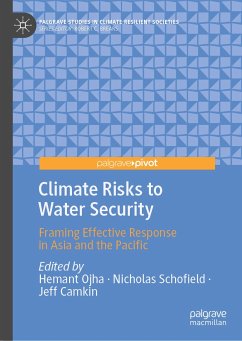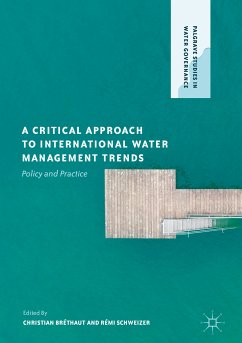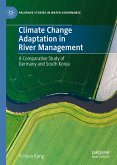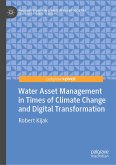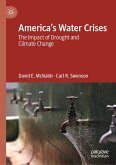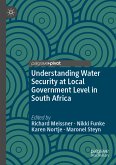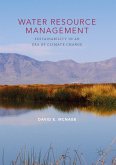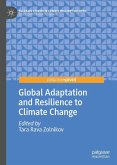"Water is the primary medium through which the impacts of climate change are manifested. This book fleshes out the latest and contemporary science required to inform decision-making that spans from climate risk assessment to developing conducive policy measures in different socio-ecological zones for one of the most vulnerable regions in the world." - Mukand Babel, Professor at Asian Institute of Technology and David Molden - former DG of ICIMOD and former DDG of IWMI
"The experiences, insights and key lessons drawn from ground-based experiences across the Asia-Pacific are essential for water professionals worldwide grappling with how to deliver water security in the face of climate change. The authors and editors have done a commendable job in bringing to life a set of diverse realities, and then drawing timely lessons for all of us". - David Molden
This book takes stock of how climate change isimpacting water security, across diverse socio-ecological zones and river basins in the region. It shows how interactions between climate, society, environment, and hydrology are exacerbating water insecurity. The book showcases emerging operational, management and policy responses, highlighting contextual lessons for securing the region's water future under changing climate. Chapters are written by researchers and practitioners engaged in a variety of socio-ecological zones, such as Himalayan springs, coastal cities, deltas, dry zones, wetlands, and Pacific islands, plus basin-scale analysis of the Yangtze, Murray-Darling and Lower Mekong. Through intersectoral analysis and a risk-focused approach, this book makes an important contribution to water management and climate resilience in the Asia-Pacific region and beyond.
Hemant Ojha is Associate Professor, University of Canberra, and Principal Advisor, IFSD, Sydney.
Nicholas Schofield is Professorial Fellow, University of NSW, and Director Global Future Research.
Jeff Camkin is Adjunct Professor, University of Western Australia and founding Editor-in-Chief, World
Water Policy Journal.Dieser Download kann aus rechtlichen Gründen nur mit Rechnungsadresse in A, B, BG, CY, CZ, D, DK, EW, E, FIN, F, GR, HR, H, IRL, I, LT, L, LR, M, NL, PL, P, R, S, SLO, SK ausgeliefert werden.
Es gelten unsere Allgemeinen Geschäftsbedingungen: www.buecher.de/agb
Impressum
www.buecher.de ist ein Internetauftritt der buecher.de internetstores GmbH
Geschäftsführung: Monica Sawhney | Roland Kölbl | Günter Hilger
Sitz der Gesellschaft: Batheyer Straße 115 - 117, 58099 Hagen
Postanschrift: Bürgermeister-Wegele-Str. 12, 86167 Augsburg
Amtsgericht Hagen HRB 13257
Steuernummer: 321/5800/1497
USt-IdNr: DE450055826
Bitte wählen Sie Ihr Anliegen aus.
Rechnungen
Retourenschein anfordern
Bestellstatus
Storno

